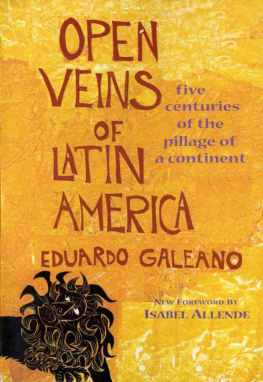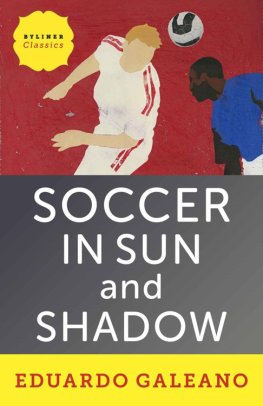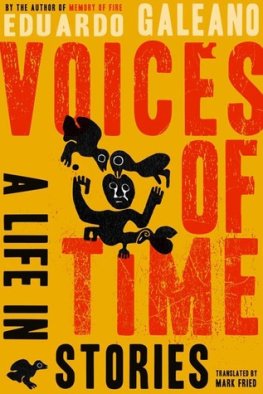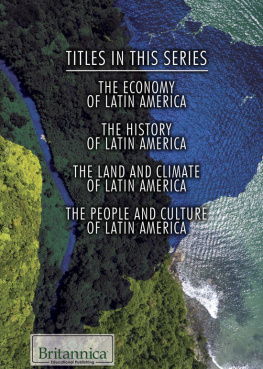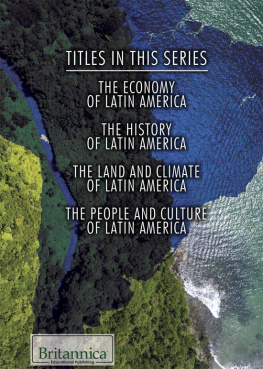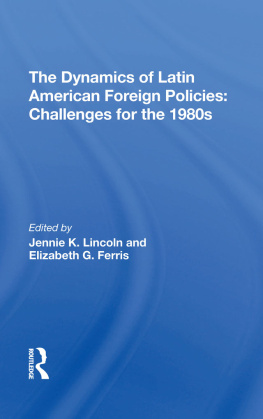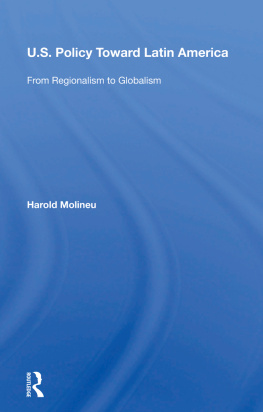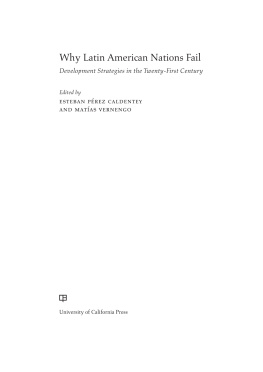Open Veins of Latin America
also by E DUARDO G ALEANO
Days and Nights of Love and War
Memory of Fire:
Volume I, Genesis
Volume II, Faces and Masks
Volume III, Century of the Wind
The Book of Embraces
Eduardo Galeano
O PEN V EINS of L ATIN A MERICA
FIVE CENTURIES OF THE PILLAGE OF A CONTINENT
Translated by Cedric Belfrage
25 TH A NNIVERSARY E DITION
FOREWORD by Isabel Allende

Copyright 1973, 1997 by Monthly Review Press
All Rights Reserved
Originally published as Las venas abiertas de Amrica Latina
by Siglo XXI Editores, Mxico, copyright 1971 by Siglo XXI Editores
Library of Congress Cataloging-in-Publishing Data
Galeano, Eduardo H., 1940
[Venas abiertas de Amrica Latina. English]
Open veins of Latin America: five centuries of the pillage of a continent / Eduardo Galeano; translated by Cedric Belfrage. 25th anniversary ed. / foreword by Isabel Allende.
p. cm.
Includes bibliographical references and index.
ISBN 978-0-853-45991-0 (pbk.: alk. paper). ISBN 978-0-85345-990-3 (cloth)
1. Latin AmericaEconomic conditions. I. Title.
HC125.G25313 1997
330.98dc21 97-44750
CIP
Monthly Review Press
146 West 29th Street
New York, NY 10001
15 14 13 12 11 10
We have maintained a silence
closely resembling stupidity.
From the Revolutionary Proclamation
of the Junta Tuitiva, La Paz, July 16, 1809
Contents

I NTRODUCTION: 120 M ILLION C HILDREN
IN THE E YE OF THE H URRICANE
Foreword Isabel Allende

Many years ago, when I was young and still believed that the world could be shaped according to our best intentions and hopes, someone gave me a book with a yellow cover that I devoured in two days with such emotion that I had to read it again a couple more times to absorb all its meaning: Open Veins of Latin America, by Eduardo Galeano.
In the early 1970s, Chile was a small island in the tempestuous sea in which history had plunged Latin America, the continent that appears on the map in the form of an ailing heart. We were in the midst of the Socialist government of Salvador Allende, the first Marxist ever to become president in a democratic election, a man who had a dream of equality and liberty and the passion to make that dream come true. That book with the yellow covers, however, proved that there were no safe islands in our region, we all shared 500 years of exploitation and colonization, we were all linked by a common fate, we all belonged to the same race of the oppressed. If I had been able to read between the lines, I could have concluded that Salvador Allendes government was doomed from the beginning. It was the time of the Cold War, and the United States would not allow a leftist experiment to succeed in what Henry Kissinger called its backyard. The Cuban Revolution was enough; no other socialist project would be tolerated, even if it was the result of a democratic election. On September 11,1973, a military coup ended a century of democratic tradition in Chile and started the long reign of General Augusto Pinochet. Similar coups followed in other countries, and soon half the continents population was living in terror. This was a strategy designed in Washington and imposed upon the Latin American people by the economic and political forces of the right. In every instance the military acted as mercenaries to the privileged groups in power. Repression was organized on a large scale; torture, concentration camps, censorship, imprisonment without trial, and summary executions became common practices. Thousands of people disappeared, masses of exiles and refugees left their countries running for their lives. New wounds were added to the old and recent scars that the continent had endured. In this political context, Open Veins of Latin America was published. This book made Eduardo Galeano famous overnight, although he was already a well-known political journalist in Uruguay.
Like all his countrymen, Eduardo wanted to be a soccer player. He also wanted to be a saint, but as it turned out, he ended up committing most of the deadly sins, as he once confessed. I have never killed anybody, it is true, but it is because I lacked the courage or the time, not because I lacked the desire. He worked for a weekly political magazine Marcha, and at twenty-eight he became the director of the important newspaper Epoca, in Uruguay. He wrote Open Veins of Latin America in three months, in the last ninety nights of 1970, while he worked during the day in the university, editing books, magazines, and newsletters.
Those were bad times in Uruguay. Planes and ships left filled with young people who were escaping from poverty and mediocrity in a country that forced them to be old at twenty, and that produced more violence than meat or wool. After an eclipse that had lasted a century, the military invaded the scene with the excuse of fighting the Tupamaro guerrilla. They sacrificed the spaces of liberty and devoured the civil power, which was less and less civil.
By the middle of 1973 there was a military coup, he was imprisoned, and shortly afterward he went into exile in Argentina, where he created the magazine Crisis. But by 1976 there was a military coup also in Argentina, and the dirty war against intellectuals, leftists, journalists, and artists began. Galeano initiated another exile, this time in Spain, with Helena Villagra, his wife. In Spain he wrote Days and Nights ofLove and War, a beautiful book about memory, and soon after he began a sort of conversation with the soul of America: Memories of Fire a massive fresco of Latin American history since the pre-Colombian era to modern times. I imagined that America was a woman and she was telling in my ear her secrets, the acts of love and violations that had created her. He worked on these three volumes for eight years, writing by hand. I am not particularly interested in saving time: I prefer to enjoy it. Finally, in 1985, after a plebiscite defeated the military dictatorship in Uruguay, Galeano was able to return to his country. His exile had lasted eleven years, but he had not learned to be invisible or silent; as soon as he set foot in Montevideo he was again working to fortify the fragile democracy that replaced the military junta, and he continued to defy the authorities and risk his life to denounce the crimes of the dictatorship.
Eduardo Galeano has also published several works of fiction and poetry; he is the author of innumerable articles, interviews, and lectures; he has obtained many awards, honorary degrees, and recognition for his literary talent and his political activism. He is one of the most interesting authors ever to come out of Latin America, a region known for its great literary names. His work is a mixture of meticulous detail, political conviction, poetic flair, and good storytelling. He has walked up and down Latin America listening to the voices of the poor and the oppressed, as well as those of the leaders and the intellectuals. He has lived with Indians, peasants, guerrillas, soldiers, artists, and outlaws; he has talked to presidents, tyrants, martyrs, priests, heroes, bandits, desperate mothers, and patient prostitutes. He has suffered tropical fevers, walked in the jungle, and survived a massive heart attack; he has been persecuted by repressive regimes as well as by fanatical terrorists. He has opposed military dictatorships and all forms of brutality and exploitation, taking unthinkable risks in defense of human rights. He has more first-hand knowledge of Latin America than anybody else I can think of, and uses it to tell the world of the dreams and disillusions, the hopes and the failures of its people. He is an adventurer with a talent for writing, a compassionate heart, and a soft sense of humor. We live in a world that treats the dead better than the living. We, the living are askers of questions and givers of answers, and we have other grave defects unpardonable by a system that believes death, like money, improves people.
Next page
